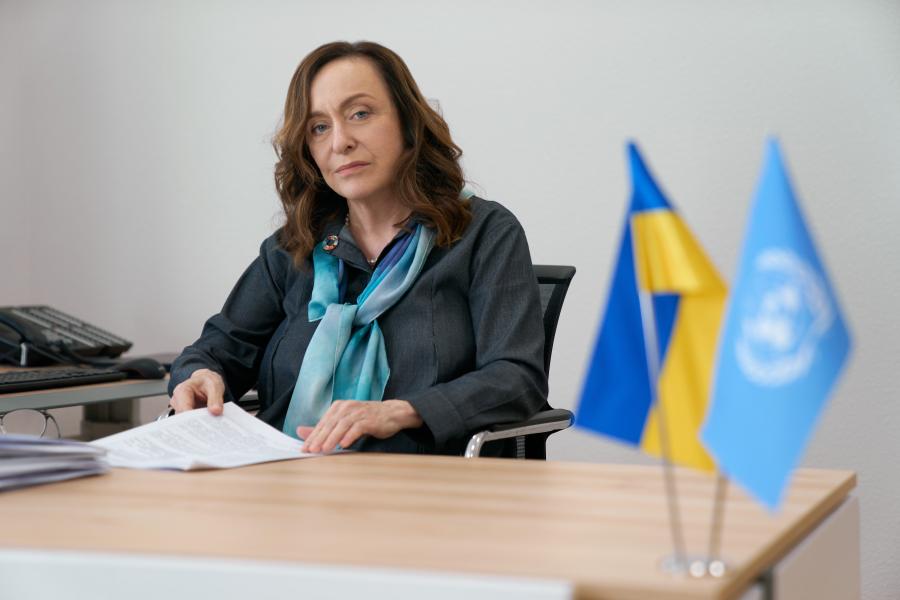Humanitarian Coordinator in Ukraine calls for the improvement of humanitarian access to people in need in the conflict-affected areas
Over the past days, I visited communities in certain areas of conflict-affected Donetsk and Luhansk regions that are not under Government control.
People I met who live close to the “contact line” shared their appreciation for all the assistance received from humanitarian partners. They described a situation of increasing hardship due to prolonged conflict that is now compounded by the COVID-19 pandemic. As they yearn for a return to a normal peaceful and dignified life, in view of their increasing destitution, they also acknowledge their need and the importance for such support to continue.
For hundreds of thousands of people who depend on access to social benefits and services on the Government-controlled side of the “contact line”, the almost complete closure of all crossing points now for a tenth month – resulting in a 97 per cent decrease in crossings – is devastating. One woman shared with me that she never imagined she would “miss the long lines and hours of waiting at the crossing points.” It is lamentable that with brand new service centres now established at the crossing points, ready to serve people, only a small fraction of those in need can access them at this time. It will surely take many more months before the pandemic is over. I firmly believe that solutions can be found to increase freedom of movement and open greater access to services, safely and responsibly, to alleviate the suffering of those most vulnerable.

The UN and its humanitarian partners are fully committed to continue providing humanitarian assistance in all areas affected by conflict in line with humanitarian principles of humanity, neutrality, impartiality and independence. In certain areas of Donetsk and Luhansk regions not under Government control, in order to reach 1.7 million people in need, we count on all concerned to facilitate our humanitarian operations in adherence with international humanitarian law and other international standards. Regrettably, in certain areas of Luhansk region, we currently face restrictions that severely limit our ability to provide humanitarian assistance and to operate in general. I urgently call on all relevant actors to facilitate safe, timely and unimpeded humanitarian access to all people in need of assistance in accordance with humanitarian principles and to allow international actors to effectively fulfil their mandates.
As I make my way back to Kyiv, recalling other recent visits to both sides of the “contact line”, I wish to pay tribute to the inspiring women I came across this time, and every time, whose energy, enthusiasm and commitment to care for the most vulnerable keep the fabric of society intact in the face of adversity. Whether as heads of community groups or as managers or volunteers in social institutions that cater to the internally displaced, the older persons or children with disabilities, they are shining lights of hope for a better future for these beautiful regions. I believe harnessing such human-centered leadership at higher decision-making levels holds great potential for finding new creative solutions to bring an end to the conflict.
As a humanitarian community, we stand ready to support the 3.4 million people in need of assistance in eastern Ukraine. We count on the commitment of all relevant actors to enable us to fulfill our role so we can provide them urgently required humanitarian assistance and protection.
For further information, please contact: Lizaveta Zhuk, UN Office for the Coordination of Humanitarian Affairs (OCHA) in Ukraine, lizaveta.zhuk@un.org, tel. +380 50 344 16 94


